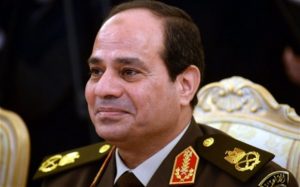Three characteristics define Egypt, claimed Gamal Abdel Nasser, its charismatic former president. The country is Arab and Muslim, to be sure. But the third feature, Nasser implied, is not as well recognized: “Can we possibly ignore the fact that there is an African continent that fate decreed us to be part of?” he asked.
Nasser embraced Africa, fostering leaders who sought to emulate his Egyptian revolution.
More recently, though, Egypt has withdrawn from the continent. The relationship turned sour when Hosni Mubarak, Egypt’s then president, was almost assassinated in Ethiopia in 1995. For the next 16 years Mubarak shunned African summits. When he was finally booted out of office in 2011, the country’s Africa policy involved little more than quarrelling over water. But after years of upheaval, Egypt is beginning to re-engage with the continent.
The renewed attention is a matter of pride and self-interest. Uncomfortable with its decline on the world stage, Egypt aspires to reclaim the status that it had under Nasser. In the Middle East, where it has been eclipsed by wealthier neighbors, this is unrealistic. But it boasts the most powerful army and third-largest economy in Africa, where it has much to gain, starting with business.
To get a sense of how much Egypt has withdrawn from Africa, consider that its trade on the continent accounts for less than 3 percent of its total, according to Vinaye Ancharaz of the Swiss-based International Centre for Trade and Sustainable Development. Apart from its neighbor Libya, no African country is among Egypt’s top 15 export markets. Nigeria, the continent’s largest economy, buys just 0.3 percent of what Egypt sells abroad, whereas it purchases more from 40 other countries, including such faraway minnows as Andorra and Barbados.
Poor infrastructure and logistics, and a tendency for African countries to stick with historical trade partners, explain some of this. But Leila Mokaddem of the African Development Bank notes that the situation has not changed in the past decade. Whereas Egypt’s trade has grown, the proportion going to Africa has hardly budged.
“There is a lot of room for improvement,” she says, not least because Egypt sells things that Africans want, such as pharmaceuticals, and the cement and steel needed to build infrastructure.
Abdel Fattah al-Sisi, Egypt’s president, is focused on attracting investment, but his embrace of the continent has been well received by business.
“We can see that the government wants to encourage collaboration with Africa,” says Ahmed Heikal of Qalaa Holdings, an Egyptian firm that invests in Africa.
Read more at The Economist



